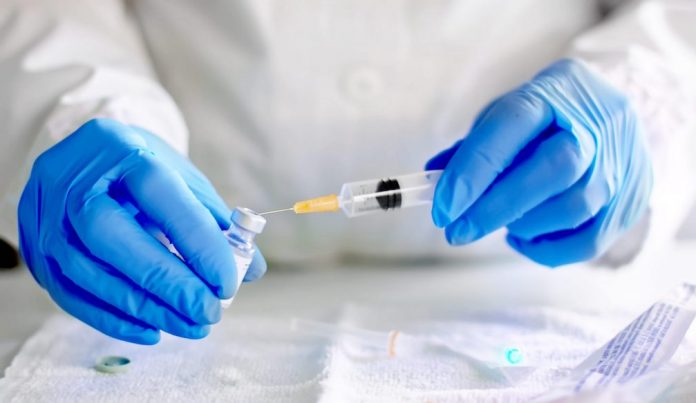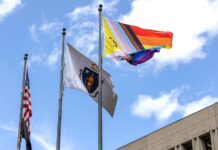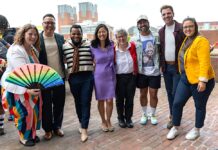To ensure that Black and Latinx people are proportionately represented in clinical trials of investigational COVID-19 vaccines, Boston-based Fenway Health is making it easier for those who live and work in several Greater Boston communities to participate.
To make this happen, Fenway — one of the country’s leading care and research centers for LGBTQIA+ people — is partnering with Matrix Medical Network to deploy a mobile health clinic to reach previously under-represented people in Roxbury, East Boston, Lynn, Cambridge, Brockton, Chelsea and Everett.
Explains a recent Fenway release:
Fenway is currently participating in the Phase 3 clinical trial testing the efficacy of a vaccine developed by Oxford University and licensed to the pharmaceutical company AstraZeneca to evaluate if the vaccine can prevent symptomatic COVID-19. Fenway Health is recruiting adults aged 18 years or over from diverse racial, ethnic and geographic groups who are healthy or have stable underlying medical conditions, including those living with HIV, and who are at increased risk of infection from the SARS-CoV-2 virus. The vaccine trial will be randomized, double-blind, and placebo-controlled. Fenway Health is one of seven trial sites in New England.
Fenway Health will use the mobile health clinic to support its efforts to ensure that Black and Latinx people are proportionately represented in the clinical trial, as these groups have experienced disproportionately higher rates of SARS-CoV-2 infections and fatalities than other racial and ethnic groups. To date, 35 percent of participants in Fenway’s trial are racial minorities who identify as Hispanic, Black/African American, Asian, Indigenous, or of mixed race.
“Black and Latinx people in America are nearly three times more likely to become infected with COVID-19 and Black people are two times more likely to die from the disease than white people,” said Adrianna Boulin, Community Engagement Manager at The Fenway Institute. “We will not be able to understand the effectiveness of the vaccine in Black and Latinx communities without their participation in vaccine research.”
Volunteers for the vaccine clinical trial will meet with researchers approximately 10 times over a two-year period. Typically, volunteers must travel to clinical research sites, which may require taking time off from work. That inconvenience, when coupled with widespread distrust of the health care system among many Black Indigenous and People of Color has made it historically difficult to enroll racial minorities in clinical trials.
The mobile health clinic permits Fenway Health to safely meet volunteers where they live and work to better ensure that people who have well-founded fears of how they or their families might be impacted by structural racism in the health care system can participate in clinical research. When the mobile medical research van visits communities, it will be parked outside community health care centers that Fenway Health has also partnered with, making it easier to connect community members that we engage with in COVID-19 testing and treatment or other healthcare needs they may have.
Read the complete release here.
Not a subscriber? Sign up today for a free subscription to Boston Spirit magazine, New England’s premier LGBT magazine. We will send you a copy of Boston Spirit 6 times per year and we never sell/rent our subscriber information. Click HERE to sign up!









